We’ve all been there: You wish you could find a podcast about [insert topic here], but it doesn’t exist. Or maybe it does, but the quality/approach/voice of the host puts you off. Suddenly, you start thinking: Why not make one myself?
If you recognise yourself, you’re not alone. Podcasts have been on the rise for years, and their number – 1.5 million at the moment – continues to rise, along with the amount of apps and channels that make them available. And for good reason: They’re the radio show of the new millennium, easy to access and consume while doing other things, such as commuting, cooking or even tidying up the house (a-hem). And unlike radio shows, they’re relatively easy to produce with minimal cost and equipment.
Hosting a podcast is also an exciting creative endeavour that allows you to reach a community of like-minded people all over the world, and maybe even generate an income stream. Who knows, your idea could become the next big thing!
So, why not give it a try? We’ve put together a step-by-step guide to help your project take off.
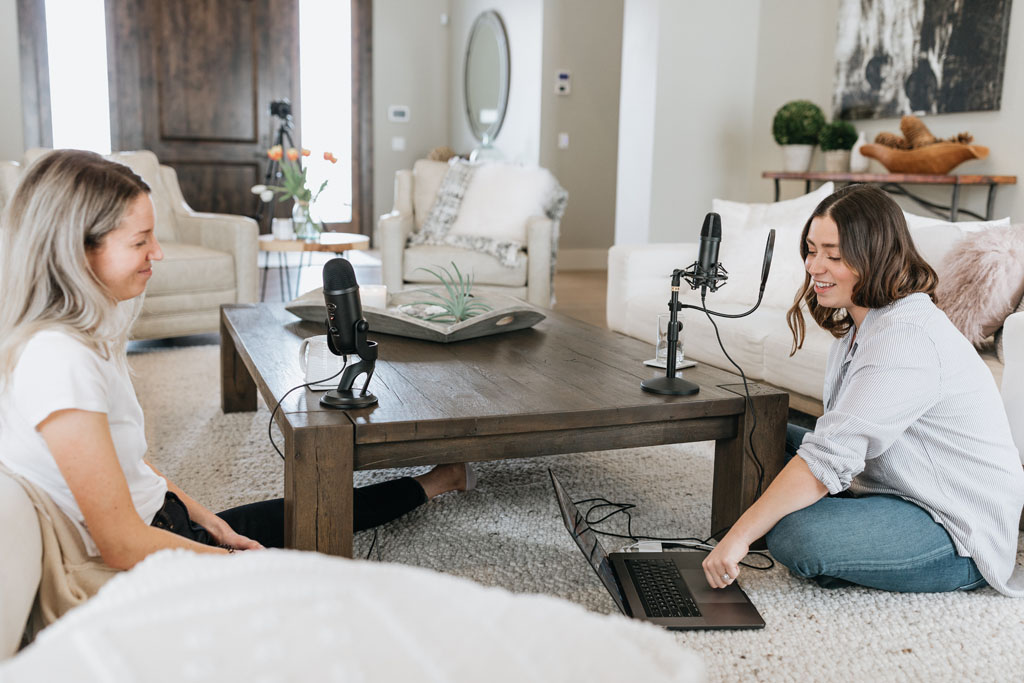
Step 1: Craft Your Concept – And Refine It
The very first step to launching your podcast is, of course, choosing a subject for it, which can be a daunting task. We recommend that you don’t start from the outside, i.e. asking yourself what others might want, but rather from within, by identifying your passions.
“Pick a topic you love and are interested in. It sounds really obvious, but it makes a huge difference to the final result,” says Nicola Thomis, Editor of The Sniff Perfume Podcast. “More than other mediums, podcasts really seem to speak to people (quite literally!), and sparking those connections with others around the globe keeps me interested and fuels every episode.”
Picking a topic (and an angle) you love will ensure your motivation stays high – after all, creating a podcast means taking on a commitment to your listeners. What would you love to listen to? What fresh perspective can you offer?
Also, keep in mind that your medium is the spoken word, and the topic needs to fit it; this can even be a barrier for wildly popular podcasts like 99% Invisible. “We would cover graphic designs more if we could figure out a way to explain them,” Roman Mars, producer and host extraordinaire, told us in a past interview.
Based on the topic you’ve chosen, you will need to also pick a format, the structure that holds it all together. Is yours going to be interview-style, like The Adam Buxton Podcast? Or maybe you’re thinking of creating a conversational format with a friend? Or perhaps you’d rather host a storytelling podcast, be it fictional like The Truth or nonfiction like The Catch and Kill?
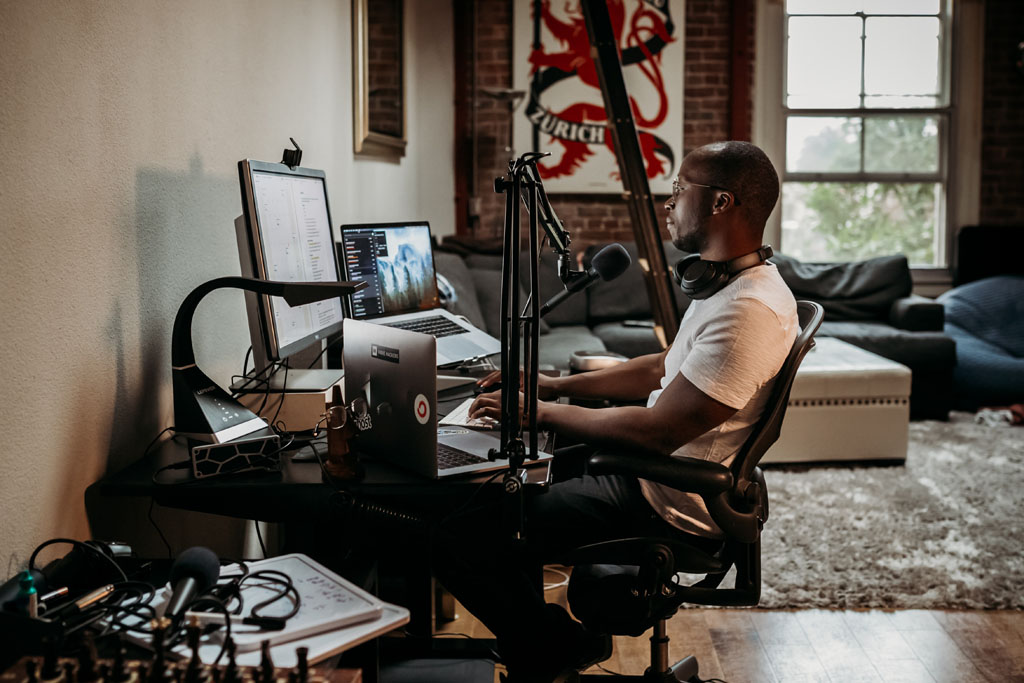
Step 2: Research, Write, Practice
Time to hit the ground running. Start by identifying the podcasts you like the most, and listen to them with a critical mindset (warning: it might be harder than you think). What’s so special about them? What would you improve on? This exercise can inspire you when it comes to the style you’d like to adopt, and prompt you to ask the right questions about storytelling techniques.
Prior to starting recording, you will need a script – even if you don’t think you do. Even if you don’t think your favourite podcasters use one. “A podcast isn’t a casual conversation. It’s professional entertainment disguised as a casual conversation,” says German-American comedian Albert Bozesan, creator of the German sitcom podcast JOUR FIXE. “Prepare what you want to say, no matter the format!”
Storytelling is a topic of its own, but here’s a simple reflection: Some of the best podcasts are those that just draw you in – that you can’t stop listening to. How did the host do that? Listen, analyse and try some of them to see how they work out for you. As with any other creative endeavour, practice is key – and getting feedback can be very helpful.
Step 3: Ready To Go On Air?
Time to delve into the gear, but let’s be clear: The tools don’t make the professional. They can, however, be great investments to keeping your motivation high. If you feel like going for a fully integrated podcast production studio like The RØDECaster™️ Pro – or other professional equipment – by all means go ahead: that’s a good way of sealing your commitment.
For those looking to minimise the initial investment, a good microphone and a free, open-source audio editor like Audacity constitute a valid option for dipping their feet in the water. Rolling Stone even reports of podcasters using an iPhone to record and edit.
The second variable to consider is the level of noise you have at home. Are there building works taking place near you? Do you live close to a busy road? Make sure you set yourself up in a sound-proof corner of a room – it can be as easy as using a room divider, foam panels or heavy curtains.
Once you’ve recorded your pilot episode, you will need to edit it. The entire goal of editing is to make your message as clear and straightforward as possible. That means making hard choices on what to cut, and likely experiencing massive resistance from your very self – but it needs to be done. Cut away anything that doesn’t serve your message.
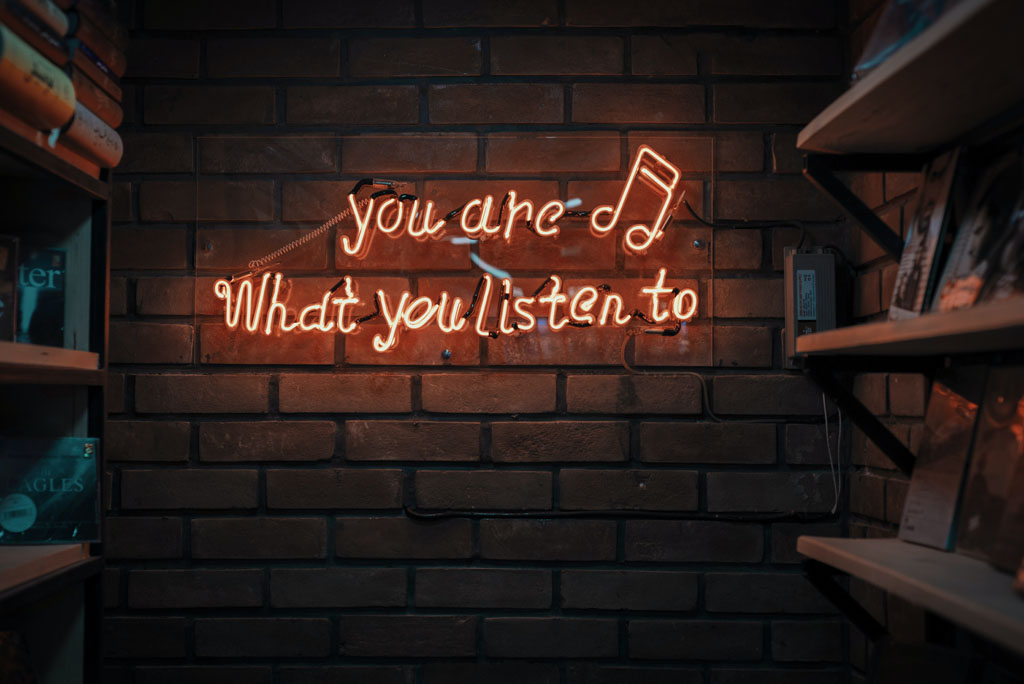
Step 4: Tell Your Friends
Congratulations! You’ve done the work, and now it’s time to go online – remember that some platforms don’t offer hosting, so you may need to first host the podcast on a website, then share the link on services like Spotify and Apple Podcasts. Alternatively, you can use a service (there are several) to simultaneously publish your podcast on all channels. Don’t forget to have a logo ready – the best ones are simple, memorable and scale well to small formats.
Once your episode is live, share it! Ask for feedback, interact with other podcasters, and yes, tell your friends. You need to build an audience, and that takes time, so enlist the help of those you love.
Don’t forget to give yourself a pat on the back for what you’ve achieved, and start outlining the next episode. Your podcast adventure has just started – where it will lead is all up to you.

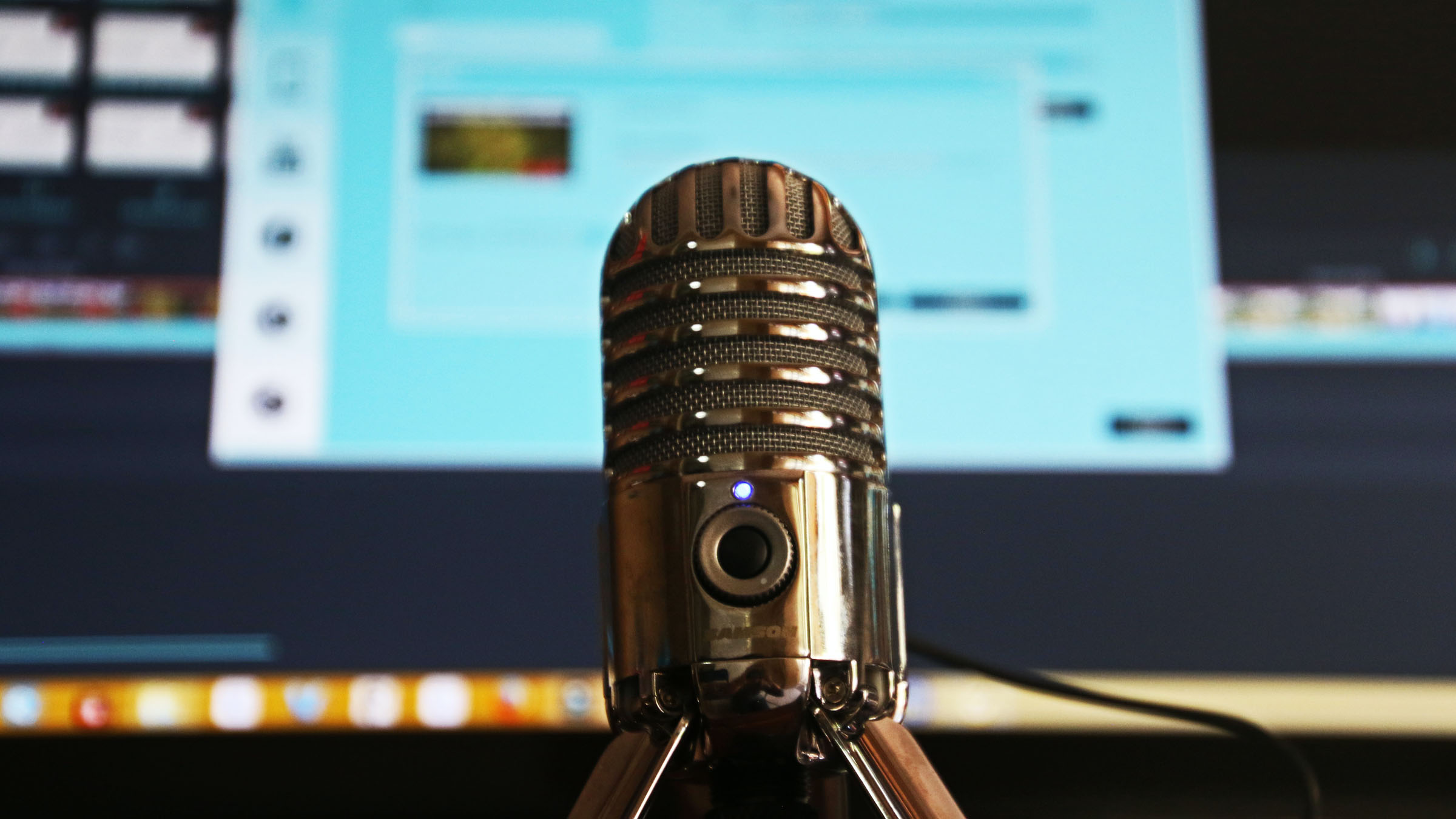

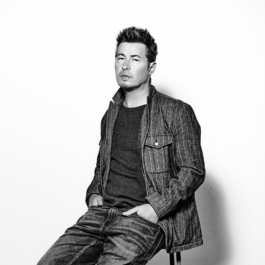




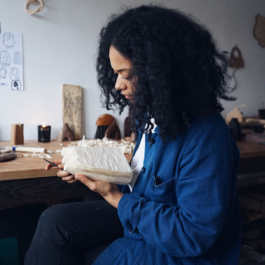
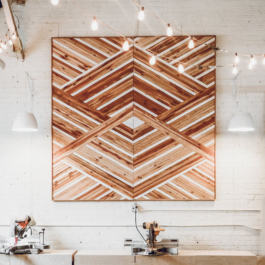

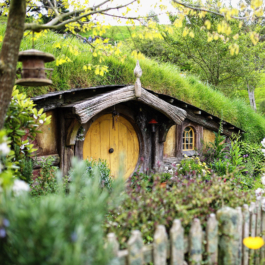


Sorry, the comment form is closed at this time.